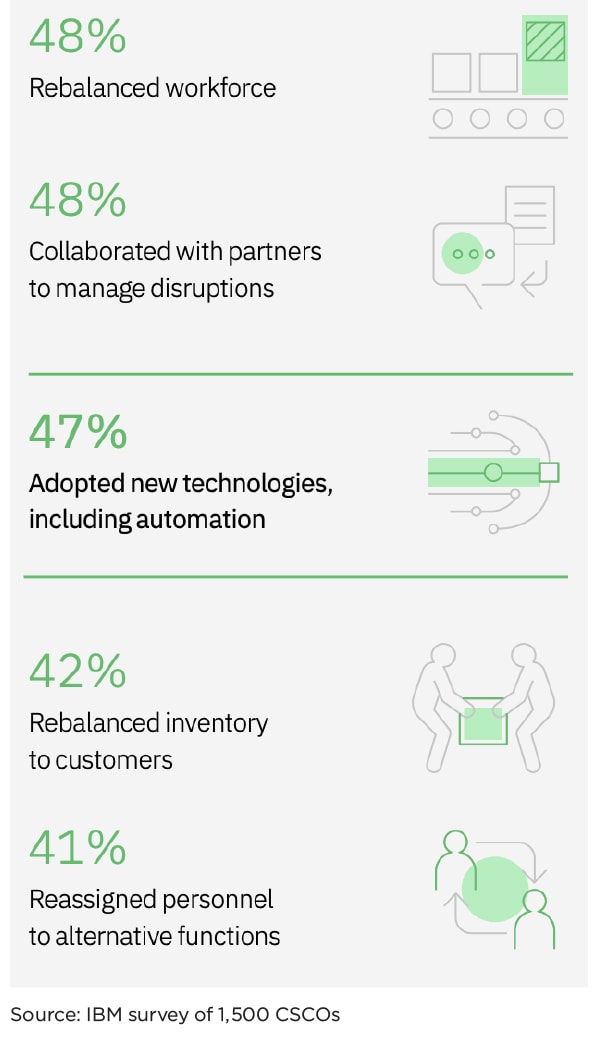Business as Unusual

A new IBM survey of 1,500 chief supply chain officers (CSCOs) reveals that supply chain leaders have accepted their fate: Business will continue to be anything but typical for the immediate future. The main focus for CSCOs now is to prepare for what happens next.
Navigating global supply chain uncertainties has become a priority for corporate boards and C-suites alike, the study shows. Over the next two to three years, CSCOs say that issues related to supply chain disruptions, technology infrastructure, sustainability, and market shifts are their greatest challenges. To cope, they expect heightened emphasis on supply chain functionalities and roles to give CSCOs the expertise, latitude, and organizational authority to innovate into a data-led future.
Here are some key data points to consider:
- 86% of CSCOs predict an increase in the importance of macroeconomic forces over the next 2-3 years.
- 95% of top-performing CSCOs are using more digitalization and AI automation than their peers.
- 36% of respondents note an increase in CEOs citing supply chain disruption as one of their greatest challenges.
Interviews with CSCOs yielded interesting advice including the following:
“I would tell a new chief supply chain officer to make sure your foundation is solid and that you’re managing the day to day, and then ask, where’s technology going?”
—Mike Corbo, Chief Supply Chain Officer, Colgate Palmolive
“The one thing that I think we need to address at scale is labor and people. And I just do not see it. Suddenly, it feels like we have lost 20% of the workforce.”
—Sophie Bechu, Chief Operations Officer, Philips
Creativity in a Crunch
Almost half of supply chain organizations have reacted to disruptions by adopting new technologies, including automation.


